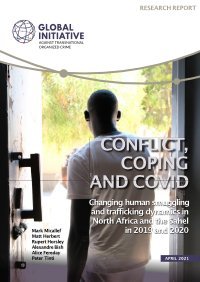Edited byAnna Triandafyllidou
This open access book discusses the socio-political context of the COVID-19 crisis and questions the management of the pandemic emergency with special reference to how this affected the governance of migration and asylum. The book offers critical insights on the impact of the pandemic on migrant workers in different world regions including North America, Europe and Asia. The book addresses several categories of migrants including medical staff, farm labourers, construction workers, care and domestic workers and international students. It looks at border closures for non-citizens, disruption for temporary migrants as well as at special arrangements made for essential (migrant) workers such as doctors or nurses as well as farmworkers, ‘shipped’ to destination with special flights to make sure emergency wards are staffed, and harvests are picked up and the food processing chain continues to function. The book illustrates how the pandemic forces us to rethink notions like membership, citizenship, belonging, but also solidarity, human rights, community, essential services or ‘essential’ workers alongside an intersectional perspective including ethnicity, gender and race.
IMISCOE Research Series. Cham: Springer, 2022. 264p.




